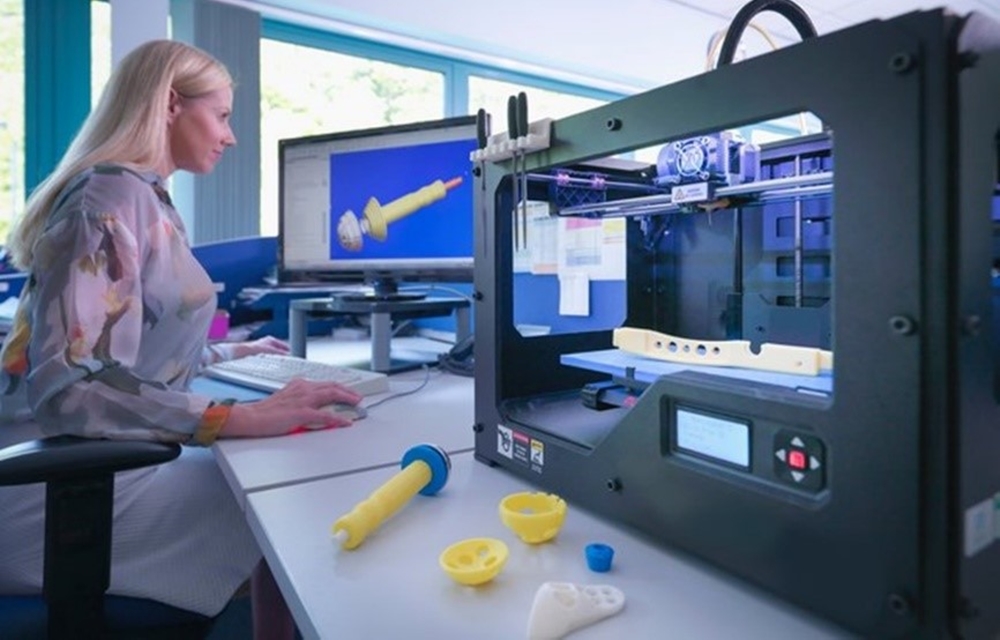To successfully use Additive Manufacturing processes, design engineers need a basic knowledge of 3D printing processes. Only then can they select the appropriate process or the optimal combination of different processes for each part. The required skills required go far beyond system operation and can be acquired in extra-occupational training courses. One option is the degree for Anwendungstechniker (FH) für Additive Verfahren/Rapid-Technologien (in German), which is offered by the University of Applied Sciences Schmalkalden in Thuringia as a two-semester course with certificate.
Additional qualification for trainees
Since 2018, trainees for industrial metal professions can acquire the additional qualification "Additive manufacturing processes". Over a period of eight weeks, trainees learn, among other things, how to model and design components, select suitable 3D printing processes, set up machines, adjust process parameters and monitor component quality. Upon application, the Chambers of Industry and Commerce (IHKs) will subsequently check and certify this.
Interested trainees and companies can find more detailed information about this training program for junior employees in the Second Ordinance amending the Ordinance on Vocational Training in the Industrial Metalworking Sector (in German).
In addition to the Chambers of Industry and Commerce, initiatives such as Niedersachsen ADDITIV (www.niedersachsen-additiv.de) also help the companies in their search for further training offers. Some of these offer training courses themselves or arrange contacts to suitable partner organizations.
To find out how companies can train employees to operate 3D printing systems, visit https://en.phi-hannover.de/smart-minds/article/detail/qualifying-employees-in-companies-for-additive-manufacturing.
